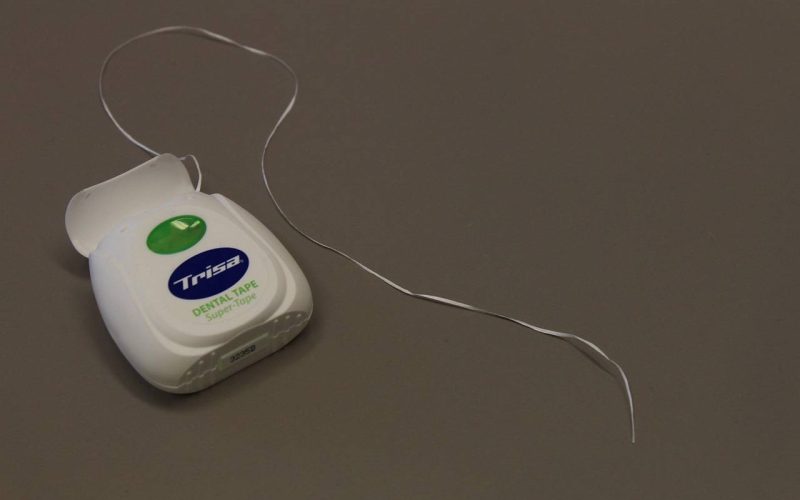Can Bad Oral Health Affect Your Brain?
When most people think about oral health, they picture white teeth, fresh breath, and a clean smile. But maintaining a healthy mouth is about more than just appearances; it can also play a role in protecting your brain. In recent years, research has revealed an important link between gum disease, tooth decay, and cognitive issues such as memory loss, dementia, and Alzheimer’s disease.
At 65 Broadway Dental, we believe that a proactive approach to your dental care not only keeps your smile strong but may also safeguard your brain and overall well-being.
In this blog, we’ll explore how oral health and brain health are connected, what science says about the risks, and how simple habits like regular dental visits can make a life-changing difference.
The Mouth-Body Connection
Just how dental health affects overall health, it also influences the health of our brains. Neglecting your regular dentist checkups can lead to significant health concerns later, the most worrying of them being depleted brain health.
Your mouth is not an isolated part of your body; it’s closely connected to your overall health. When bacteria and inflammation develop in the mouth, they can travel beyond your teeth and gums, even as far as the brain.
For decades, doctors have warned that bad oral health increases the risk of systemic issues like heart disease, diabetes, and respiratory infections.
Now, mounting evidence shows that your mouth may also influence your cognitive health. This discovery is changing how both dentists and physicians view the importance of preventive care.
How Poor Oral Health Can Affect the Brain
Gum Disease and Inflammation
Periodontal disease (commonly called gum disease) begins when plaque builds up on the teeth and irritates the gums. Gingivitis in its initial phase causes redness, bleeding gums, and swelling. When undiagnosed and untreated, it’s capable of progressing into periodontitis, a much more serious gum disease that destroys the supportive tissues and bones that hold the teeth, requiring periodontic treatment.
The real danger comes from inflammation. When your gums are inflamed, the body’s immune response creates chemicals that can damage not only oral tissues but also circulate throughout the body. Chronic inflammation has been strongly linked to Alzheimer’s disease and other forms of dementia.
Bacteria Entering the Bloodstream
Oral bacteria, especially Porphyromonas gingivalis (a major cause behind gum disease), can enter the bloodstream through bleeding gums. Once inside, these bacteria can travel to the brain. Researchers have found that toxins released by these bacteria can damage brain cells, trigger immune reactions, and contribute to the development of dementia.
Tooth Loss and Cognitive Decline
Studies corroborate the relation between tooth loss and memory issues. Losing teeth often shows advanced gum disease, but it may also reduce chewing ability, which has been linked to decreased blood flow and stimulation in the brain. In other words, fewer teeth could mean less mental activity, potentially accelerating cognitive decline.
Role in Systemic Diseases
Poor oral health can worsen conditions like diabetes and heart disease, which in turn increase the risk of cognitive impairment. For example, diabetic patients with gum disease often find it harder to control blood sugar, creating a cycle that impacts both oral and brain health.

What the Research Says
- Alzheimer’s connection: Studies have detected the bacteria and toxic products of P. gingivalis in patients with Alzheimer’s, suggesting a connection between gum disease and early development of the disease.
- Memory function: A Harvard study found that individuals with severe gum disease and tooth loss had a higher risk of memory decline.
- Stroke risk: Gum disease increases the likelihood of strokes, which can cause vascular dementia.
While research is ongoing, the evidence strongly supports the idea that good oral hygiene combined with consistent dental checkups may play a role in reducing cognitive risks later in life.
Warning Signs You Shouldn’t Ignore
Because oral health issues often develop slowly, it’s easy to ignore early symptoms and downplay small issues. But ignoring them could put both your teeth and your brain at risk. The warnings to look out for include:
- Bleeding gums when brushing or flossing
- Persistent bad breath
- Swelling, tenderness, or receding gums
- Loose or shifting teeth
- Pain when chewing or sensation when eating hot or cold items
- Frequent cavities or tooth loss
If experiencing any of these symptoms, it’s crucial to schedule a dental checkup without delay. Early treatment can prevent long-term damage and an extended dental bill.
The Importance of Regular Dental Checkups
Routine dental checkups are one of the simplest and most effective ways to protect both your oral and brain health. During a visit, your dentist can:
- Detect gum disease before it becomes severe
- Remove plaque and tartar that regular brushing can’t
- Screen for oral cancer and other concerning health issues
- Provide insightful guidance about brushing, flossing, diet, and habits
Skipping appointments allows small issues to grow into serious health problems. Preventive care not only saves money and discomfort but may also contribute to a sharper, healthier mind as you age.
Practical Steps to Protect Your Mouth and Brain
- Brush and floss daily
Brush two times a day with a toothpaste containing fluoride and floss once a day using the appropriate material to remove plaque between teeth and along the gums. - Visit your dentist regularly
Schedule professional cleanings and exams every six months, or more often if you’re at higher risk for gum disease. - Eat a balanced diet
Limit sugary snacks and drinks that feed harmful bacteria. Focus on whole foods, lean proteins, fruits, and vegetables that support overall health. - Stay hydrated
Water helps wash away food particles and bacteria, while also supporting saliva production, which naturally protects your teeth. - Quit smoking
Smoking is a major causative agent for gum disease and other diseases as severe as oral cancer. Its tendency to reduce blood flow also makes it difficult for the gums to heal. - Manage systemic conditions
People with diabetes, heart disease, or other chronic conditions must follow their doctor’s guidance. Healthy habits in these areas will also support your oral well-being. - Be mindful of changes
Don’t ignore signs like bleeding gums or loose teeth. Early detection makes treatment easier and leads to a better prognosis.

Myths About Oral Health and Brain Health
“Bleeding gums happen to everyone and are normal.”
False. Healthy gums don’t bleed, and bleeding is a sign of inflammation.
“Oral bacteria only affect the mouth.”
False. Oral bacteria can spread through the bloodstream, impacting the heart, lungs, and brain.
“If I don’t have cavities, my oral health is fine.”
Not true. Gum disease often develops without pain or visible cavities, so you may not notice it until it’s advanced.
“Dental checkups are just for cleaning.”
Wrong. Dentists also screen for early disease, infection, and risk factors that can affect your entire body.
The Emotional Side of Oral and Brain Health
Oral health affects more than physical health since it also influences your confidence and social life. People with missing teeth or gum disease may refrain from smiling or social interactions, which can lead to isolation. Social engagement is known to stimulate the brain, so caring for your teeth indirectly helps keep your mind active and connected.
Why Prevention Is Better Than Cure
Treating advanced gum disease, tooth loss, or cognitive decline is far more challenging. Besides the challenges it poses, it’s also expensive, making prevention your best option. By investing in preventive care, you:
- Lower your risk of dementia and memory issues
- Preserve your natural teeth and smile
- Avoid costly treatments and oral surgery
- Support overall wellness and longevity
Simply put, caring for your mouth today is an investment in your future brain health.
The Role of Professional Dental Care
Although at-home care is critical, professional help is equally crucial for well-being. Dentists and periodontists can provide advanced cleanings and identify early signs of disease. It also develops custom treatment plans that directly address your needs.
At 65 Broadway Dental, for instance, patients benefit from personalized care that combines the latest dental technology with a holistic view of health, ensuring that your smile and brain receive the protection they deserve.
Looking Ahead: The Future of Oral and Brain Health Research
As research continues, scientists are discovering more about how oral bacteria and inflammation affect the brain.
Future treatments may include targeted therapies to reduce bacterial toxins or new diagnostic tools that detect gum disease as an early marker of cognitive decline. Until then, prevention remains the most powerful tool we have.
Conclusion: Protecting Your Mouth, Protecting Your Mind
The connection between poor oral health and brain conditions like dementia and Alzheimer’s disease is becoming clearer with every new study. More research is needed, but the current evidence strongly suggests that maintaining a healthy mouth contributes to protecting long-term brain function.
Daily brushing accompanied by flossing, a healthy lifestyle, and regular dental checkups are a few simple but powerful steps individuals can take immediately. Your smile is more than just a part of your appearance, and it may hold the key to keeping your memory, focus, and mental sharpness as you age.
By putting your oral care first, you can preserve your teeth, but you’re also investing in a healthier brain and a brighter future.
Also Read
FAQs
1. At what age does oral health affect brain health most?
Oral health can impact the brain at any age, but studies show the risk of cognitive decline rises after age 50.
2. Can treating gum disease lower dementia risk?
Yes. Treating gum disease reduces inflammation and harmful bacteria, which may lower the risk of dementia.
3. Do dental cleanings protect brain health?
Professional cleanings remove plaque and bacteria, lowering inflammation and helping protect long-term brain health.
4. Which nutrients support oral and brain health?
Vitamin D, calcium, omega-3s, and antioxidants strengthen gums, reduce inflammation, and support brain function.

Dr. Alexander Heifitz (Author)
Dr. Alexander Heifitz is the founder of 65 Broadway Dental in NYC, where he combines advanced dental expertise with a patient-first approach. He specializes in cosmetic and restorative treatments such as dental implants, veneers, Invisalign, and smile makeovers, helping New Yorkers achieve both oral health and confidence.
Booking An Appointment
Looking for a reliable dentist in Downtown NYC? Whether you need a routine cleaning, urgent care, or a full smile transformation — we’ve got you covered. We accept most PPO insurance plans and offer flexible scheduling.
+1 (212) 430-3888
Call for appointment
Walk-ins Welcome / Same-Day Appointments Available

Related Blogs

Does Baking Soda Whiten Teeth? The Complete Evidence-Based Answer
Discover how baking soda can naturally brighten teeth, what results to expect, and the science behind its whitening effect.
Read More
How Can You Help a Toothache? Simple Fixes, and When to See a Dentist
Learn quick, safe ways to ease a toothache at home, what to avoid, and the signs that mean it’s time to visit a dentist immediately.
Read More